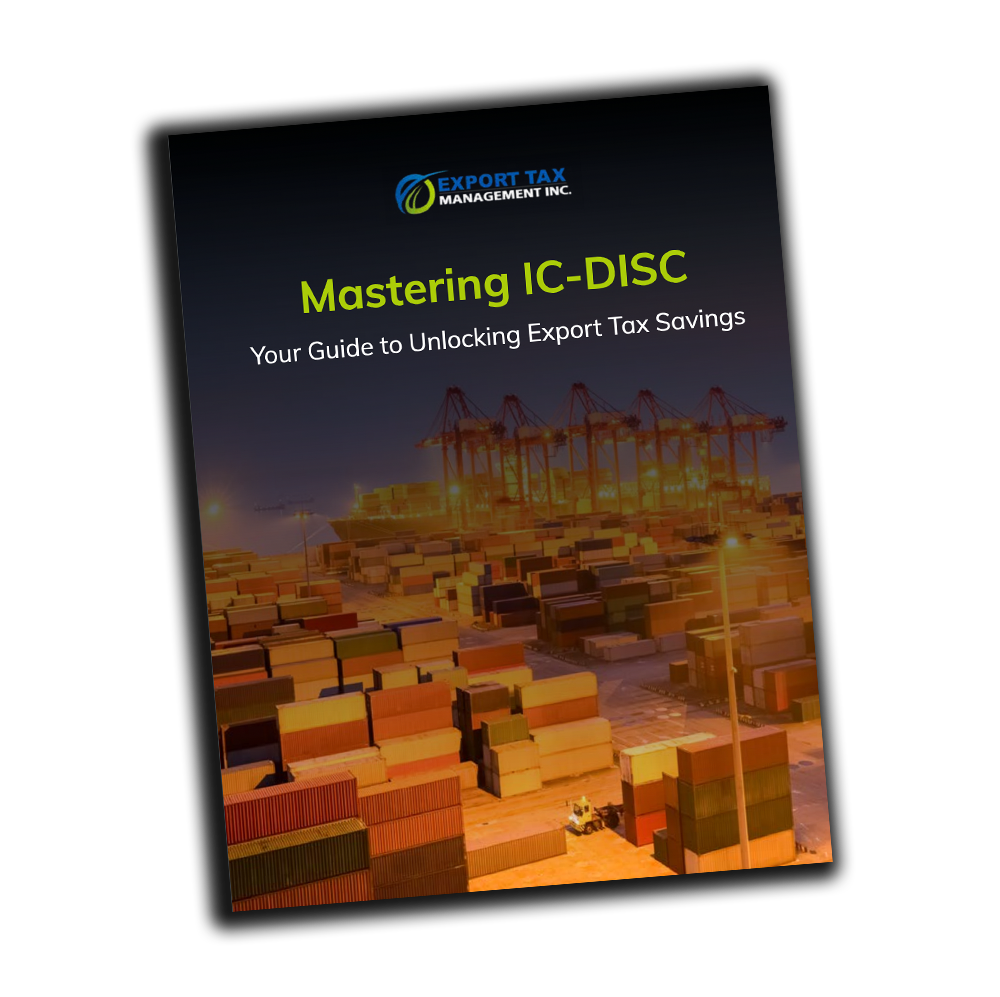Are IC-DISC Dividends Qualified? A Complete Guide
Navigating the U.S. tax code can be a challenge—especially for export-driven businesses aiming to reduce their tax burden without running afoul of regulations.
One little-known but highly effective strategy is the use of an Interest Charge Domestic International Sales Corporation, or IC-DISC.
IC-DISC dividends can be considered qualified dividends if they meet specific IRS requirements. This allows them to be taxed at the lower capital gains rate instead of ordinary income rates.
This article takes a closer look at IC-DISC dividends, particularly how they can qualify for favorable tax treatment and deliver significant savings.
If your company earns revenue through exports, understanding how these dividends work could make a major difference to your bottom line.
Read on to explore the intricacies of IC-DISC dividends, understand the qualification criteria, and discover how they can optimize your export tax strategy.
Table of Contents
- Structure of IC-DISC Dividends
- Criteria for Qualified IC-DISC Dividends
- Tax Treatment of IC-DISC Dividends
- Calculating Tax Savings with IC-DISC Dividends
- Compliance and Reporting Requirements
- Benefits Beyond Tax Savings
- FAQs
- Conclusion
Structure of IC-DISC Dividends: Understanding the Framework

Understanding the structure of IC-DISC dividends is crucial for determining their qualification. Here’s a breakdown of the key aspects:
- Qualified Dividends: These are dividends that meet specific Internal Revenue Service (IRS) requirements, resulting in preferential tax treatment.
- Tax Rates: Qualified IC-DISC dividends are generally taxed at lower capital gains rates compared to ordinary income tax rates. This translates to significant tax savings for shareholders.
Want to see how much your export business could save with this IC-DISC export tax incentive and qualified dividends? Although tax savings will vary depending on your specific circumstances, the potential benefits can be substantial.
Contact Export Tax Management today for a free consultation and discover if an IC-DISC is the right fit for you.
Criteria for Qualified IC-DISC Dividends: Ensuring Eligibility

For IC-DISC dividends to be considered qualified, they must meet the following criteria:
- Dividend Qualification: The IC-DISC must distribute its taxable income to its shareholders in the form of dividends each year.
- Holding Period: Shareholders must hold the IC-DISC stock for a minimum period, typically at least six months, before receiving qualified dividends.
- U.S. Source Requirements: The income generating the dividends must originate from qualified export sales.
20+ Years IC-DISC Experience
Unlock Significant Tax Benefits with IC-DISC
Our objectives are simple: to provide you with maximum export tax savings, while delivering unmatched personal attention by our staff of CPAs. Schedule a free consultation today to discuss how Export Tax Management can help you.
Schedule Free ConsultationTax Treatment of IC-DISC Dividends: A Closer Look

The tax treatment of IC-DISC dividends offers distinct advantages:
- Tax Exemption for IC-DISC: The IC-DISC itself is generally exempt from federal income tax on its export income.
- Dividend Distribution: The IC-DISC distributes its taxable income as qualified dividends to its shareholders.
Calculating Tax Savings with IC-DISC Dividends: Quantifying the Benefits

Understanding the potential tax savings is key to appreciating the value of IC-DISC dividends.
Here’s a simplified example:
- Scenario: A company generates $1 million in export sales income. Under normal circumstances, this income would be taxed at the corporate income tax rate (currently 21%).
- IC-DISC Implementation: By establishing an IC-DISC, the company pays an IC-DISC commission to the IC-DISC on the export sales, reducing its taxable income. The IC-DISC, being tax-exempt, distributes this commission as a qualified dividend to the shareholders—one of the core IC-DISC tax advantages.
- Tax Savings: The shareholders pay tax on the qualified dividend at the capital gains rate (currently 0% for most taxpayers in the lower tax brackets). This translates to a significant IC-DISC tax saving compared to the ordinary income tax rate.
Note: This is a simplified example, and actual tax savings will vary depending on your specific circumstances. Curious to see how much your business could save with IC-DISC dividends? Contact Export Tax Management for a free consultation.
Compliance and Reporting Requirements: Fulfilling Your Obligations

Utilizing IC-DISC dividends comes with specific compliance and reporting requirements:
- Documentation: Proper documentation of export transactions, commission calculations, and dividend distributions is crucial.
- Filing Requirements: Additional tax forms may need to be filed alongside your regular tax returns.
Benefits Beyond Tax Savings: Exploring Additional Advantages
While tax savings are a significant advantage, IC-DISCs offer additional benefits:
- Increased Cash Flow: By deferring tax payments on export income, IC-DISCs can improve a company’s cash flow.
- Strategic Use: IC-DISCs can be used strategically to manage tax liabilities across different tax years.
If you want to take your international business to the next level, IC-DISC is the answer. Check out our related articles:
FAQs: Addressing Common Questions about IC-DISC Dividends
C Corp dividends are generally considered ordinary income and taxed at ordinary income tax rates.
Foreign dividends typically don’t qualify as qualified dividends. However, there may be tax treaties with specific countries that offer favorable treatment for foreign dividends.
No, a return of capital is not considered a dividend. It represents a return of the shareholder’s investment and is not taxable.
An IC-DISC lets an exporter deduct a commission (reducing operating income) while the IC-DISC pays no federal tax and later passes that income out as dividends taxed at lower qualified dividend rates, often up to 23.8% instead of ordinary rates. It also offers deferral on export income.
It’s qualified if it’s paid by a U.S. (or certain foreign) corporation and you held the stock unhedged for at least 61 days within the 121-day period starting 60 days before the ex-dividend date; otherwise it’s unqualified and taxed as ordinary income.
Do you need more information on IC-DISC dividends and their qualifications?
Streamline your export tax strategy with IC-DISC export tax incentive. Contact Export Tax Management for a Free Consultation.
20+ Years IC-DISC Experience
Unlock Significant Tax Benefits with IC-DISC
Our objectives are simple: to provide you with maximum export tax savings, while delivering unmatched personal attention by our staff of CPAs. Schedule a free consultation today to discuss how Export Tax Management can help you.
Schedule Free ConsultationConclusion: A Final Look at Qualified IC-DISC Dividends
IC-DISC dividends represent a unique and highly effective way for export-focused businesses to reduce tax liabilities and boost cash flow.
Throughout this article, we’ve covered how these dividends work, what makes them qualified, and the compliance steps necessary to make the most of the tax benefits.
With proper implementation, an IC-DISC can turn routine export income into a long-term financial advantage.
If you’re serious about improving your export strategy and keeping more of what you earn, now is the time to consider this powerful tax tool.
Ready to see what’s possible?
Reach out to Export Tax Management and take the first step toward smarter tax planning.




